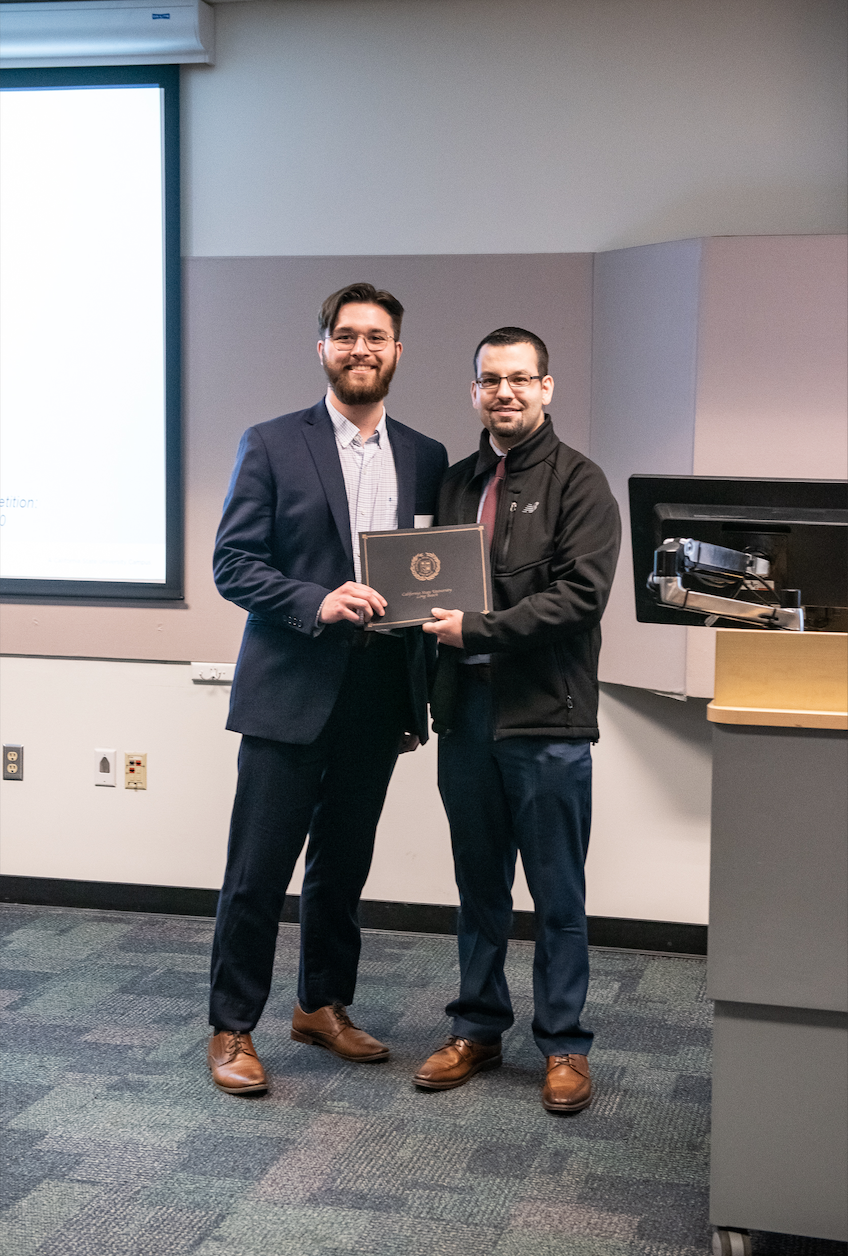Meet Nicholas Roy
Meet Nicholas Roy
 What is your year in school?
What is your year in school?
I am senior graduating at the end of this semester.
What is your major?
I am double majoring in Mathematical Economics and Applied Mathematics and a minor in Philosophy.
Have you taken advantage of any opportunities during your undergrad? If so, what?
In my sophomore year, I joined ESA and became President the next semester. It was a really great opportunity to take a leadership role and give back to our economics department which had done so much for my intellectual growth. The leadership experience also helped me when I became a Peer Mentor and Tutor for the College of Natural Science and Mathematics and when I organized a fundraiser for the St. Baldrick’s foundation.
I also took advantage of the fabulous graduate courses the economics and mathematics departments offer. Those really allowed me to get to know professors better, dive deeper into the material, and deepen my skill set and challenge myself.
Why did you decide to come to CSULB?
Initially, I was looking for a university that provided the most financial support and widest variety of majors. I didn’t have a set path in mind or much money to waste time figuring that out. Luckily at CSULB, I found a real passion for economics and quantitative decision making in general.
What do you plan to do after graduation?
I know that eventually, I’d like to go to graduate school to deepen my theoretical understanding and strengthen my quantitative skillset. I do want to take a year or two beforehand to finish unfinished research projects and to potentially work at a research institution for a few years before applying to a Ph.D.
What is your favorite part of the department of economics?
The faculty in our department who really pushed me in the direction of gaining more quantitative skills and research experience. I wouldn’t even know the potential of quantitative social science if it wasn’t for faculty like Dr. Steimetz or Dr. Long pointing me in the right direction. The best part is that after pursuing those curiosities, you get to meet a lot of really interested, motivated, and like-minded people who challenge you and promote your personal growth.
What research have you done?
Last summer I was a Research Intern at an environmental economics think tank in Washington D.C. called Resources for the Future. There I did data cleaning and econometric modeling to look at energy efficiency in the trucking sector through the lens of principal-agent problems. Now I work as a Research Assistant at the Center for International Trade and Transportation where I continue to research the freight sector, this time looking at supply chain disruptions in port city drayage. I also did independent research in the graduate econometrics and research methods courses in our department on municipal solid waste production and California’s cap and trade policy.
Could you tell us more about the award you just received?
The Pacific Southwest Region University Transportation Center Undergraduate Student of the Year award is an award given to two students across nine research universities in the pacific southwest region. I was one of the recipients this year for my research in environmental regulation and supply chain disruptions in the freight sector. I am presenting (remotely) the supply chain disruptions research at the CSU statewide research competition this month! It has already won at the CSULB student research competition so hopefully, it will win awards there too.
What advice would you give fellow students?
Two main pieces of advice:
If something sounds interesting or hard, go try it especially math, research, graduate classes, coding, etc. There are so many things that five years ago sounded like magic to me and only because I was encouraged to try them did they become a part of my current skillset and worldview. Even if you never quite understand the material or concepts you’re exposed to, you’ll meet some bright and interesting people who do.
When things are difficult or challenging maintain a positive and optimistic attitude. If you follow the first piece of advice there are going to be a lot of hiccups, failures, and denials before you reach a point where you succeed. The only way to reach that point is by not letting the road bumps throw you too far (remain flexible) off course. I didn’t feel like I was doing anything right until my senior year but looking back there aren’t many decisions I would have made differently.
Is there anything else you would like the audience to know?
Focus on maximizing social utility, not private benefits, even if others well-being is not a high priority for you. I meet way too many econ majors obsessed with justifying their selfishness with rational self-interest and economic theory. That looks like it leads to a rat race to the bottom. The tools we learn in economics are going to help you succeed in life if you use them for cooperation and community instead of solely individual benefit. This can seem counter-intuitive, but it isn’t unreasonable considering that the wealthiest people in the world pledge to give 99% of their wealth away or invest in making humans a sustainable multiplanetary species.
Could you tell us more about the award you just received?
The Pacific Southwest Region University Transportation Center Undergraduate Student of the Year award is an award given to two students across nine research universities in the pacific southwest region. I was one of the recipients this year for my research in environmental regulation and supply chain disruptions in the freight sector. I am presenting (remotely) the supply chain disruptions research at the CSU statewide research competition this month! It has already won at the CSULB student research competition so hopefully, it will win awards there too.
